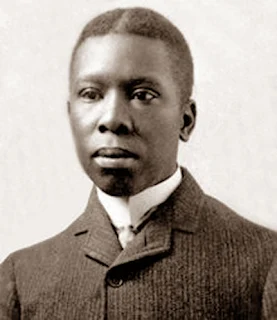Paul Laurence Dunbar - Biography Dunbar Laurence Paul
Dunbar, Paul Laurence (1872-1906), African American poet, often remembered for his dialect poetry. Paul Laurence Dunbar wrote this poem, "The Poet," three years before his death in 1906 at the age of 34. Its words may express his own regrets about the direction of his literary career. Dunbar was the most famous African American poet, and one of the most famous American poets, of his time.
His career brought him international fame and by any measure was a tremendous success. Although Dunbar felt his best work was his poetry in standard English, he was celebrated almost exclusively for his folk poetry about African Americans written in dialectthe "jingle in a broken tongue."
His identification with dialect poetry disappointed him during his lifetime and alienated some later African American readers. But Dunbar's poetry has also been praised by readers, from W. E. B. Du Bois to Nikki Giovanni, who recognized the challenges Dunbar faced as a turn-of-the-century black poet trying to sound the "deeper note."
 |
| Dunbar Laurence Paul |
Dunbar's parents had both been slaves on plantations in Kentucky. Although Dunbar was born in Dayton, Ohio, during Reconstruction, his parents' stories about life as as slaves were the basis for some of his folk poetry.
He attended Dayton public schools and was the only student of color at Dayton High School, where he was class president, editor of the school paper, president of the literary society, and class poet. After graduating in 1891 Dunbar tried to pursue a career in journalism. He could not find a writing job because of his race, and he became an elevator operator.
However, he continued writing, earning the nickname "the elevator boy poet." Dunbar took out a loan to publish his first book, Oak and Ivy, in 1893. Later that year, he read his poetry at the World's Columbian Exposition in Chicago, Illinois, where he was praised by Frederick Douglass and other prominent African Americans.
Dunbar became a crossover literary sensation in 1896, when his second book, Majors and Minors, was noticed by well-known white critic and writer William Dean Howells. Howells arranged for an expanded version of the book, titled Lyrics of Lowly Life, to be published by the mainstream white firm of Dodd, Mead. The national publication, and the speaking tour that followed, made Dunbar famous among black and white audiences. His reputation soon spread overseas.
Read also: Underground Railroad map of the Railroad Underground
Read also: Underground Railroad map of the Railroad Underground